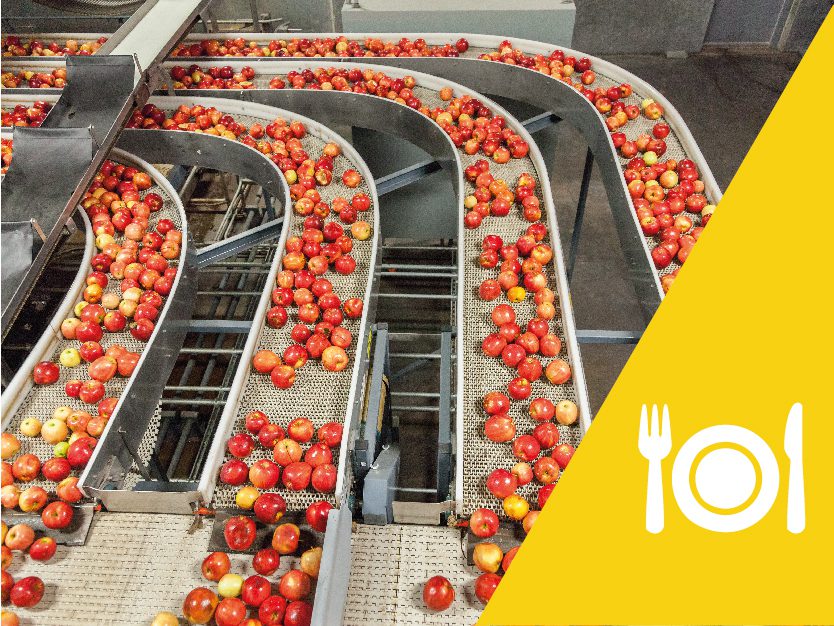The food and drink manufacturing sector experienced fewer delays and downturns during the pandemic than other engineering construction industry (ECI) sectors resulting in fewer job losses, according to findings from the ECITB’s Workforce Census.
Analysis of survey data provided by 29 ECITB-registered companies working in the food and drink industry, show that headcount decreased by nearly 5% between 2019 and 2021, well below the 15% decrease observed in the wider industry.
Because the food and drink sector received key critical national infrastructure status during the first lockdown, companies were permitted to remain in operation meaning workforce levels remained relatively unaffected.
With recovery from the pandemic in full train, employers’ growth expectations are optimistic, anticipating a 13% increase in the size of the workforce by 2023 compared to 2021. However, the census highlights several areas of concern that may impede this ambition.

Chief among them, supply chain of companies serving the food and drink industry are struggling to fill vacancies at nearly double the rate of the wider industry. More than half of companies (54%) responding to the ECITB survey reported facing difficulties hiring employees representing the equivalent of 5% of their workforce, compared to 2.6% for the ECI as a whole.
While contracting firms operating in the food and drink industry enjoy the highest rates of employees under 30 years old (25%), they are not recruiting a sufficiently diverse workforce. Only 7.6% of workers are women, which is significantly lower than the percentage for the wider ECI (13.8%).
Craft occupations make up the bulk of the workforce, with a focus on pipefitters, platers, and electrical fitters. Design technicians represent 70% of technician roles in this sector, while electrical engineers dominate their category at 39%.

Chris Claydon, Chief Executive of the ECITB, said: “The food and drink industry has been a key part of the UK’s critical national infrastructure during the pandemic, and companies in the sector have played a vital role in keeping food and drink on our tables throughout this challenging period.
“As our workforce census data shows, businesses were less impacted by lockdown restrictions while future growth prospects look buoyant.
“However, the data does reveal some challenges for the food and drink sector, not least the need to fill vacancies and improve retention. And with only 8% of workers in the engineering construction supply chain female and 98.9% white, the sector needs to do more to improve diversity and inclusion, an issue the ECITB aims to help wider industry address over the coming years.”
Mark Corbett, Innovation, Employment and Skills Policy Manager of Food and Drink Federation quoted: “We welcome this insight from ECITB. As evidenced here, the food and drink industry is, rightly, proud of its record during the pandemic – it kept the nation fed during the most testing of circumstances. This report brings into focus both the resilience of the sector and the ongoing issue of severe labour shortages, which are now seen as the biggest barrier to growth by businesses. Meeting the challenges on gender diversity in ECI roles head on will help ensure the industry has the skills and talent needed to thrive as the industry seeks to adopt the technologies required to be meet our target of being net zero by 2040.”
Conducted in Spring 2021, the Workforce Census asked engineering construction industry (ECI) employers to provide information about their workforce numbers, locations and roles. Data collected included demographic information and asked for views on workforce growth, Net Zero, Covid-19 and Brexit. Fifty percent of the ECITB’s in-scope employers responded to the Workforce Census, representing 45,351 workers from 153 in-scope companies across 1,360 locations.
The report produced by the ECITB highlights an urgent need to address potential skills and labour shortages as employer responses show an ageing workforce and slow recruitment of new talent in some sectors. This is concerning given the workforce expansion required to deliver net zero by the Government’s 2050 deadline.





